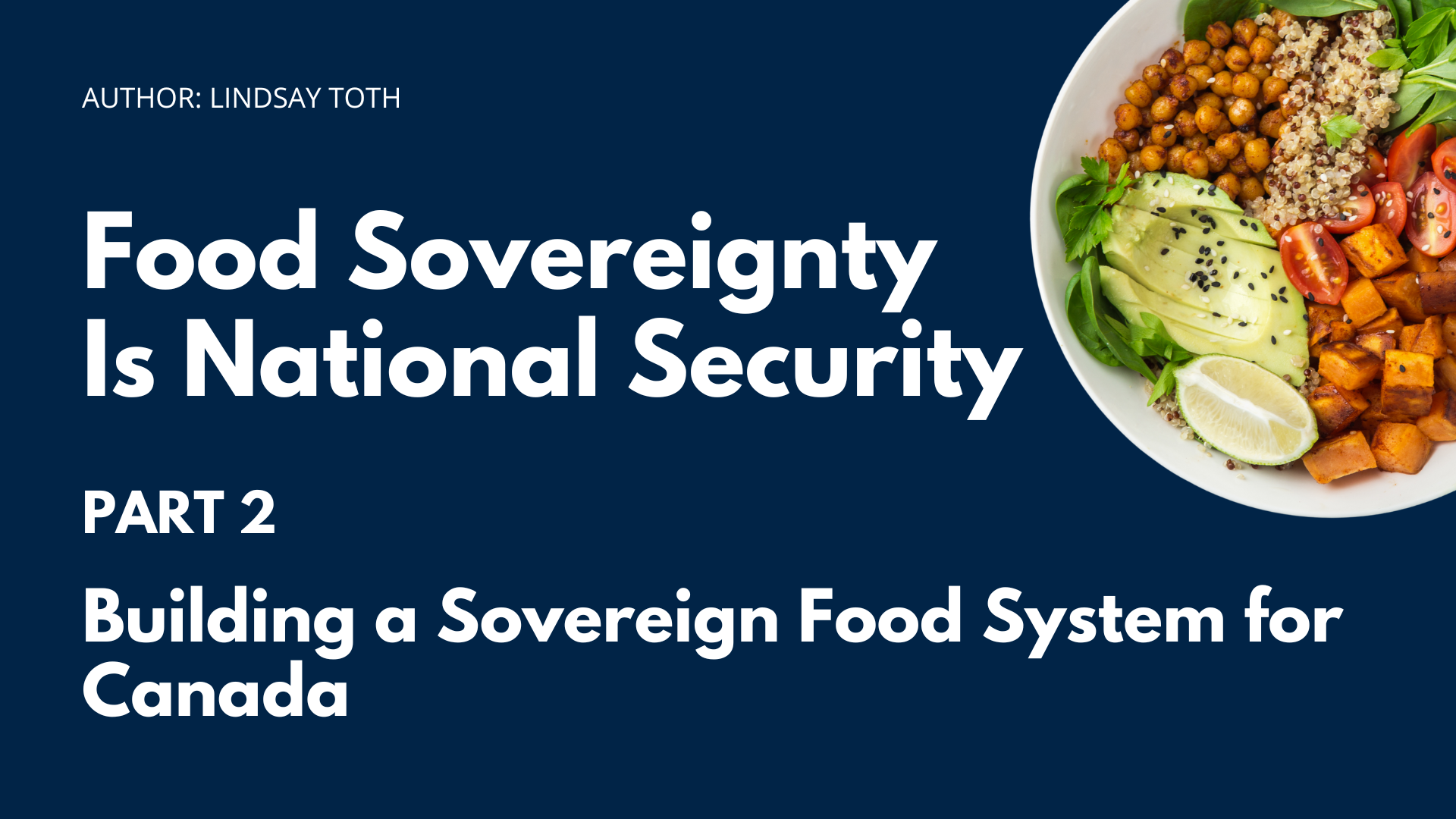Food Sovereignty Is National Security | Building a Sovereign Food System for Canada
By: Lindsay Toth
In a time of rising geopolitical instability, environmental shocks, and global supply chain disruptions, Canada must begin to treat food systems as critical infrastructure. That means more than ensuring grocery stores stay stocked. It means prioritizing policies and investments that make our food economy resilient, regenerative, and rooted in community.
Right now, too many independent food businesses are fighting just to stay afloat. If we lose this backbone of our domestic food system, we do not just lose jobs. We lose control over our food future.
Food sovereignty means building food systems from the ground up. It means enabling communities to grow, process, distribute, and access food that is culturally appropriate and locally adapted. It means creating land access programs for new farmers, investing in cold storage, transportation, and processing capacity for rural and remote regions, and strengthening small and mid-scale food businesses that serve their local economies.
It also means supporting Indigenous-led food initiatives. For many Indigenous communities, food sovereignty is about reclaiming relationships to land, language, and lifeways. Centuries of colonial policy disrupted traditional food systems, eroded food access, and undermined Indigenous governance. Today, food insecurity rates in Northern and remote Indigenous communities are among the highest in Canada, with household rates reaching 56 percent in Nunavut.
But Indigenous food sovereignty is not just about addressing food insecurity. It is about rebuilding food systems that reflect Indigenous laws, knowledge systems, and worldviews. From community hunts to seed saving collectives, from fish camps to bison restoration projects, Indigenous nations across the country are leading powerful efforts to restore food autonomy and cultural continuity. These initiatives need support, not only through funding, but through policy frameworks that respect Indigenous jurisdiction over land and food.
Indigenous food sovereignty offers a powerful model for the rest of the country: one grounded in stewardship, reciprocity, and long-term sustainability.
If we want a food-secure Canada, we need to protect and invest in the systems that feed us, not just for profit, but for people and planet.
This includes strengthening regional supply chains, investing in climate-smart agriculture, and protecting the soil, water, and biodiversity that our entire food system depends on. It means training the next generation of farmers and food entrepreneurs. It means creating infrastructure for local meat, dairy, and produce so that rural economies can thrive and consumers can rely less on long, fragile supply chains.
There is also enormous opportunity. Global demand for high-quality, ethically produced food is growing. Canada has the potential to lead, but only if we treat food as a matter of strategic national interest.
Every community with the means to feed itself becomes more resilient. Every region with a strong local food economy becomes more secure.
Food sovereignty is not a luxury. It is a necessity.






